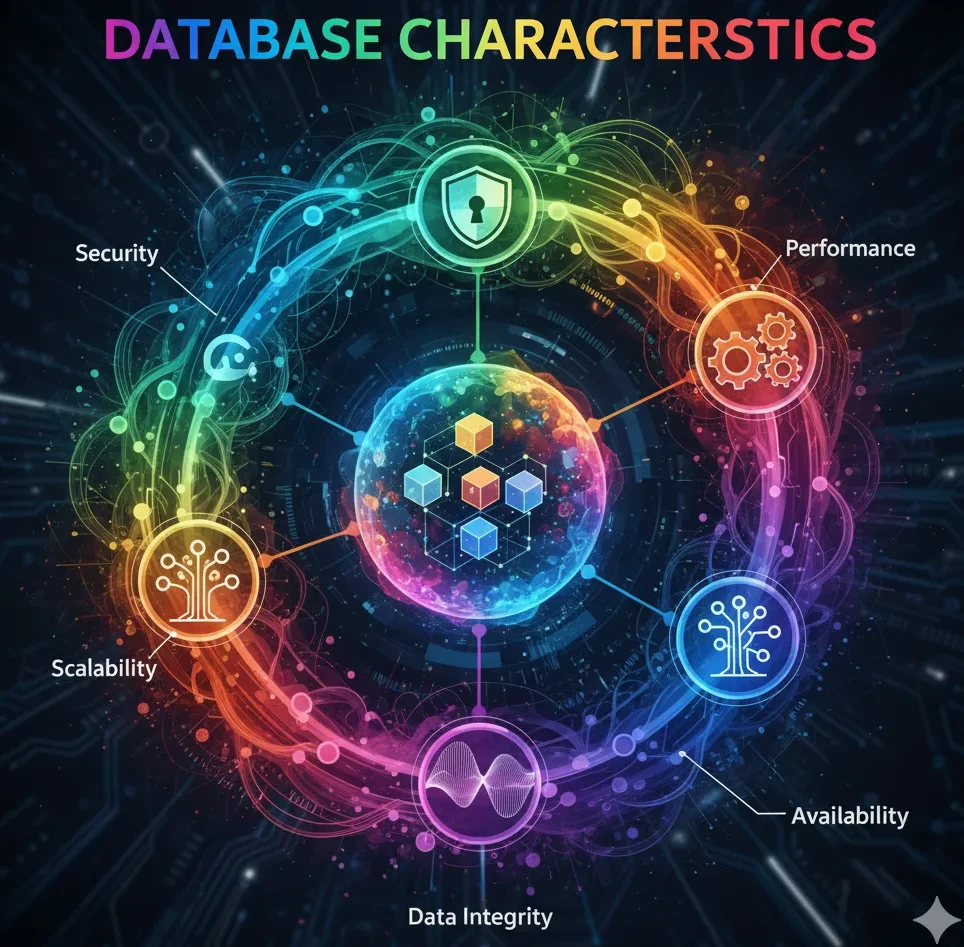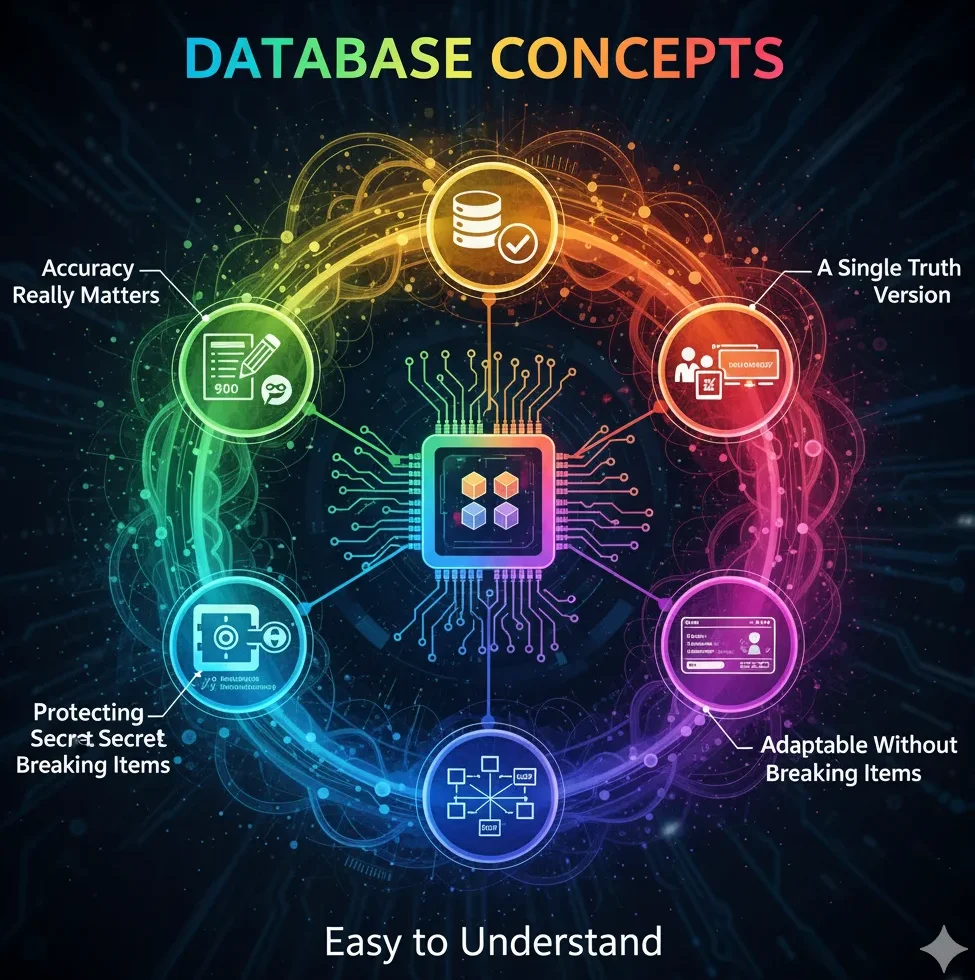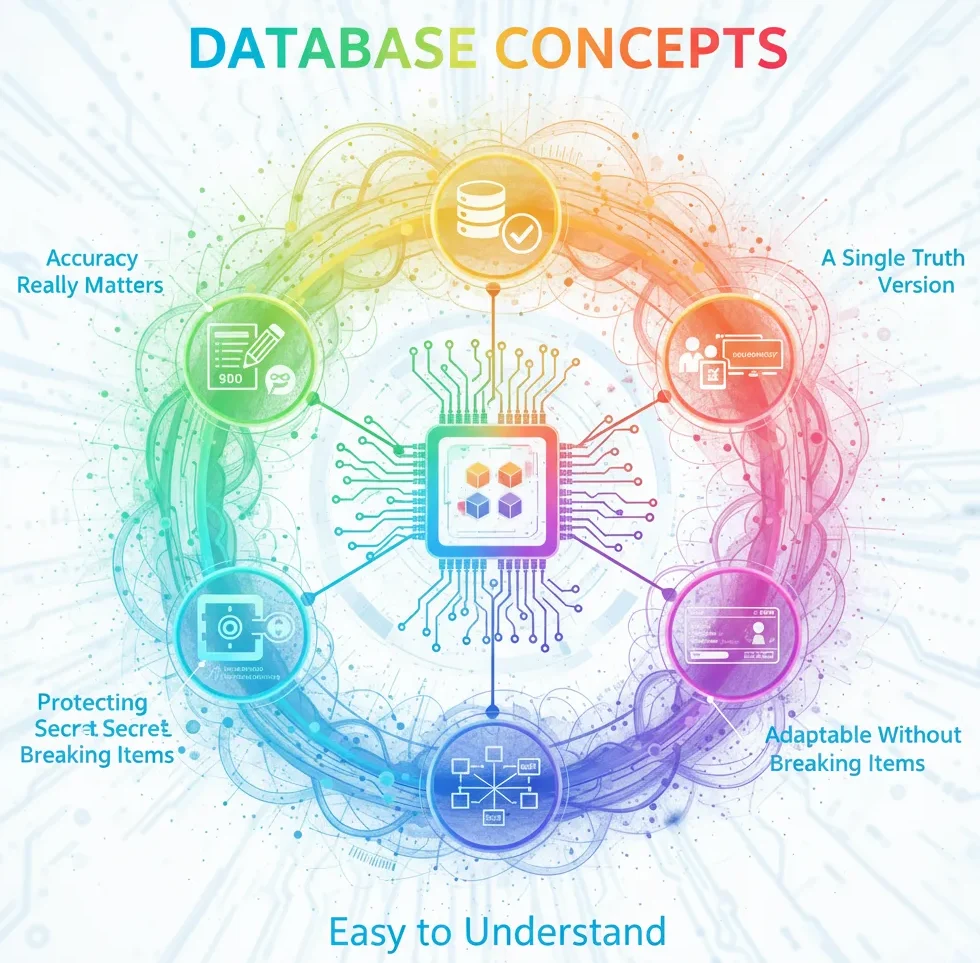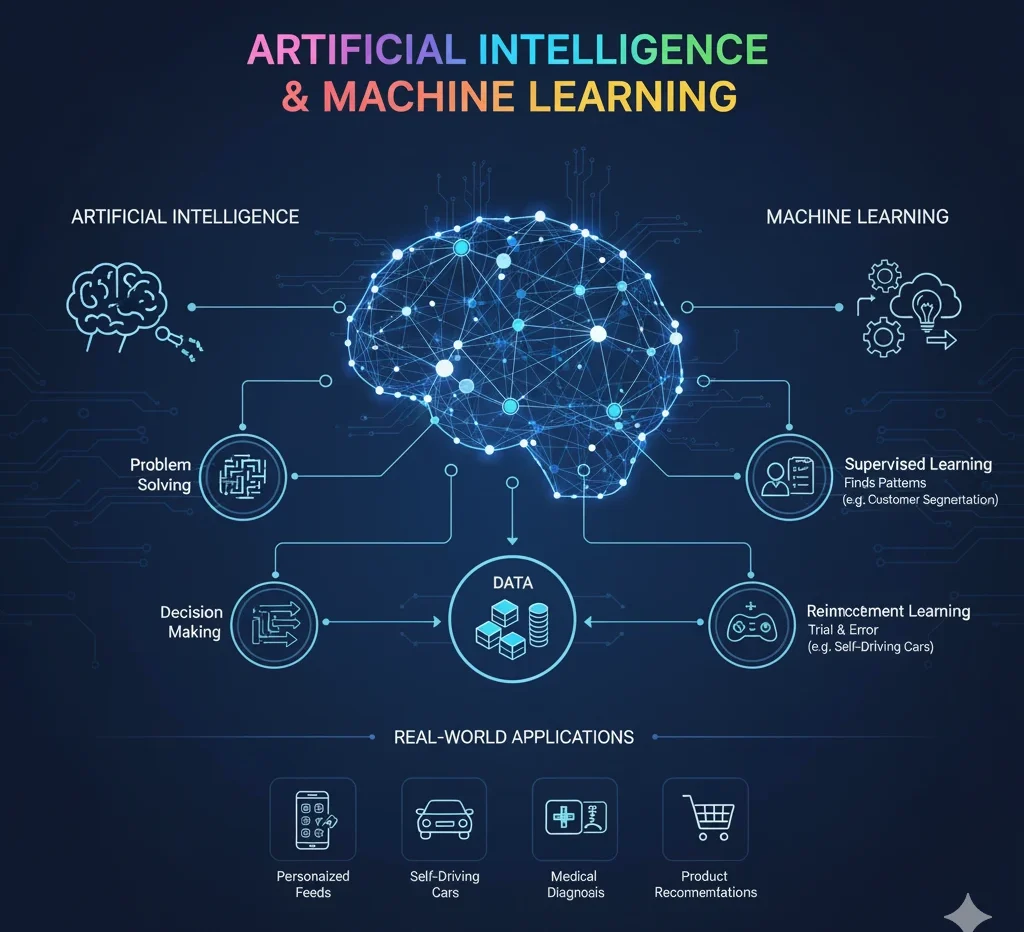Database Characteristics

You know how easy it is to use apps these days to order food, pay bills, or check the results of your exams? Everything simply functions. Sort of magical, isn’t it? Alright… To be honest, a lot goes on behind the scenes, and a database is typically the unsung hero that makes it all happen.
A database isn’t just some boring box where info gets dumped. I like to think of it more like a notebook that’s ridiculously well-organized—every page in the right place, nothing missing, and you can actually find stuff when you need it. The funny part? It does way more behind the scenes than most of us ever realize. When you stop and think about it, it’s kinda wild. Anyway, without getting too technical (and putting you to sleep), here are a few reasons databases are actually super useful.
1. Accuracy really matters
Nobody enjoys wrong info, right? Imagine opening your results and it says you scored 950 out of 600. You’d probably panic before laughing. Databases help stop those kinds of mistakes by keeping the data sensible and reliable. Basically, they’re like the friend who double-checks everything so you don’t embarrass yourself.
The funny thing is that we rarely notice databases doing all of this stuff in the background. Isn’t that crazy?
2. A Single Truth Version
Have you ever changed your bank phone number and found that some departments are still using the old one? Irritating, huh? Databases make sure that when something gets updated, it shows up the same everywhere. That way, people aren’t dealing with mixed-up details.It cuts down the confusion since everyone’s seeing the same thing. And honestly, who likes repeating the same thing again and again?
3. Protecting Secrets
Not everyone ought to see everything. Your medical history is necessary for a doctor, but what about the receptionist? No, they don’t. Databases manage access, including encryption, passwords, and logins. Your personal information remains confidential. Really, what a relief.

4. Adaptable Without Breaking Items
In the past, even a small alteration could cause major problems. Adding a new feature to a database, such as “emergency contact” for students, doesn’t affect the functionality of the rest of the system. This is known as data independence, and it really does save a ton of headaches.
5. Easy Sharing
Consider a day when Amazon is having a sale. At the same time, thousands of people click “Buy Now.” No one’s order ever goes away. In other words, databases allow multiple users to access the same data without causing any issues. Very cool, isn’t it?
6. Reduced Redundancy
Have you ever noticed that five different files contain the same phone number? Complete waste, huh? Databases address that by storing a single copy and using it again as needed. Everywhere, update it once. Very useful, actually. I mean, why do you keep saying the same thing?
7. Secure Transactions
Online money transfers are a prime example. Money leaving your account without getting to the other person is the last thing you want. Transactions are treated as “all or nothing” in databases. Either everything occurs or nothing does. makes life much simpler and, to be honest, much less stressful.
8. Manages Crowds
Thousands of students simultaneously log in during exam results. Systems would crash if improperly handled. Concurrent access is managed by databases, allowing everyone to log in without any issues. I think it’s pretty impressive.

9. Recovery and Backup
Sometimes things go wrong, like power outages, crashes, or hackers. Typically, databases have backups. Data can be restored to the last safe point in case something goes wrong. Imagine losing years’ worth of data in a single day. Yes, thank you, but no.
10. Space for Development
Grow big, start small. That’s how companies operate—and databases? They develop in tandem with them. They can easily manage more users, data, and operations. When you stop to think about it, it’s actually kind of amazing.
11. Simple Access through Inquiries
Do you want a list of pupils who received scores higher than 80? Or perhaps everyone who placed an order last week? Enter a question, and presto—you have it. Don’t sift through spreadsheets. No endless scrolling. Quick. incredibly quick. And to be honest, there are moments when it seems a bit magical. The funny thing is that we rarely notice the silent work that databases do all the time. Oh my goodness, it’s truly quite incredible.
Concluding
There are databases everywhere, silently keeping everything in order. They guarantee that data is reliable, consistent, secure, and simple to distribute. And to be honest, many of the services and apps we use on a daily basis would be in complete disarray without them.
Remember that a database made it possible the next time your order is confirmed in a matter of seconds or your results appear right away. And to be honest, it’s pretty amazing how much it accomplishes without most of us realizing it. Well, sometimes it’s good to just pause and consider that.
👉 Want to learn more? Check out our detailed guide on Attributes of Database


One thought on “Database Characteristics”